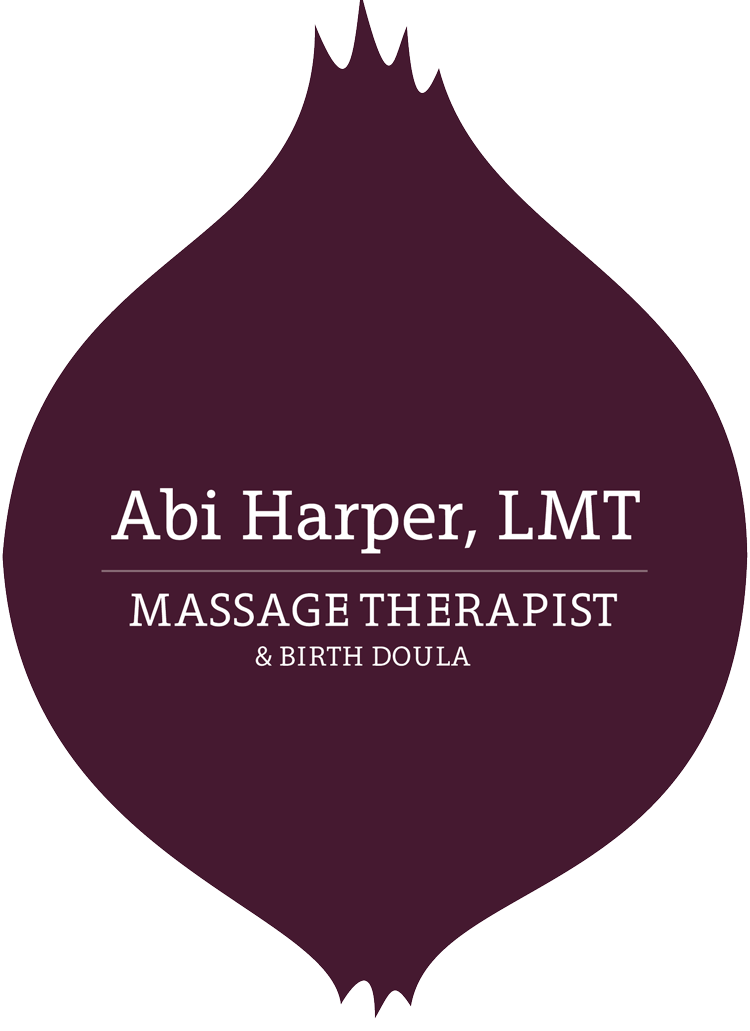There are a lot of different ways to apply pressure to muscle, a lot of different qualities and intentions that it can have, and a lot of different things that can feel deep.
There's this famous story about Ida Rolf (founder of Rolfing). Towards the end of her life, she was in a wheelchair, and she was teaching. Watching a student, she kept telling them to go deeper! Get in there man! The student leaned in deeper, pushed as hard as he could, and while the client's back got red, nothing was happening. She got tired of watching him, so she wheeled over and shooed the student away from the practice client. From a sitting position, with no leverage, using 2 fingers, she relaxed a few fingers into the practice client's back. She visibly relaxed, and that's the story. Deeper isn't the same as harder.
Most first time clients who call up or email and want to know about my work ask me "Do you do deep-tissue massage?" This is an attempt to answer that question. The answer is both yes and no.
The word pressure, when you apply it to human interaction, isn't really a very nice-sounding word. Interpersonal pressure is peer pressure, high-pressure sales, political pressure. Somebody who pressures you is a person who is not taking the hint, a person who wants you to do something you don't want to do, and sometimes I've gotten massages that were like this. "Why is your low back so tense?" I've been asked while someone dug into it with their elbow, determined to exterminate tension from my body like it was termites and I was a wooden house. I left that massage with an inflamed, too-sensitive-to-touch low back, and a feeling that I was a broken-down mess, something that needed fixing.
Recovering from an injury, I received some work from a Dr. Lydia Knutson, a chiropractor I like because she turned the idea of eradicating tension to build balance and ease on its head. From her, I got the radical idea that tension isn't senseless, it forms in our bodies for a reason, and if we don't respect those reasons, the tension will just come right back, which is only reasonable. Our bodies use muscular tension to do a number of things: Tension can stabilize an injury or an imbalance (like scoliosis, or a big pregnant belly that de-centers your center of gravity), tension can be air-locked stay-fresh tupperware that holds emotions that we can't deal with in the moment that they happen (this is called armoring, and I'm planning to write about it another day), tension can oppose gravity and hold you up in weird postures (I'd like you to take a second and notice what your shoulder is doing to hold your hand over your mouse right now.)
So if tension forms for a reason, why do we end up with excess tension? Why does melting tension with massage make tension go away and not immediately return? The best answer I've come up with so far is that when we have a lot of tension in our body, when we are out of balance, under a lot of stress, our tension is really really bad at telling time, and also sometimes it needs a break from itself. A client of mine played ice hockey in college, she was a goalie and had injured her hip. Eventually she noticed that living with an injured hip her low back and her leg had gotten really tight to the point that more and more basic day-to-day physical activities were getting harder. Her hip was no longer seriously injured, but she still couldn't go up and down stairs without difficulty from her stiff leg, couldn't sleep comfortably in bed because her low back hurt. Her injury had healed, but the tension that had so helpfully splinted her injury to protect it hadn't gotten the memo. Massage therapy was the memo. In massage, we can use pressure on the muscle as a question. With my hands (or forearms or elbows) I can ask "Hey, it's 3:15 on Thursday March 3rd. Do you need a break, maybe some fresh blood flow, a little rest this hour? How do you feel about this splinting you've been doing? Do you want to try unwinding the splint a little to see if the hip is ready to support itself?" A lot of time, I swear, the tension looks around, its eyes get a little wider, and it says "Oh! What am I still doing here? Later, y'all." Sometimes the answer is "I don't know you, get off my porch." and sometimes it's, "I don't know who you are, but maybe after I trust you I'll think about it."
Sometimes we need outside perspective to notice that maybe we're ready for change. This is the place where I think pressure can be the most useful, as a petition to notice our bodies in space and time, in relation to our inner life and our physical reality and the larger world. This is some of the best of what I think massage can do, and it is what I hope for everyone who has tension they don't need.
